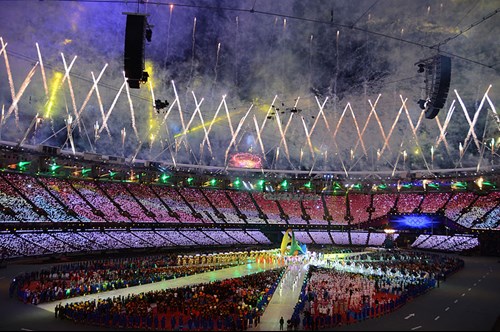Philipp Obenaus, a graduate of GIS’ MSc International Sport Management programme, chose to investigate if COVID-19 could in fact help the Olympics achieve its sustainability goals for his research project. Here, he summarises the dissertation, sharing his key findings and how they could shape the Games in years to come…

The city of Graz attempted to apply for the 2026 Olympic Winter Games but due to internal problems, the application has been withdrawn. Now, 2030 offers another chance to successfully apply for the Winter Games. Given the changes in the International Olympic Committee’s (IOC) Agenda 2020 regarding the application process, smaller cities like Graz benefit from those changes, as the high demands of the IOC have been reduced and applications from smaller host cities are welcome. The main aim of these changes is to create a sustainable Olympic Games, as well as transforming the current application process into a project which fits the sporting, economic, social and environmental long-term planning needs of the bidding cities.
The IOC’s Agenda 2020, the project of Graz 2030 and the influence of the COVID-19 pandemic are the main topics of discussion in my dissertation. The Agenda 2020 has been analysed on its feasibility and how its changes actually affect future Olympic projects. For this, the project of Graz 2030 was chosen to show how the changes create a simple journey to potential success.
My research found that IOC’s Agenda 2020 shows promising claims for changing the current philosophy into a sustainable one compared to previous Games. However, a practical approach is still missing and opens room for potential errors and non-sustainable measures to be put in place. The project of Graz 2030 seems to be a promising idea which offers a lot of potential to host Olympic Winter Games in the year 2030. It offers a sustainable project plan and shows great planning, but it also shows a huge gap in communication as well as a lack of knowledge.
The Olympics Games has always been criticised for various reasons. Beijing 2008 for its environmental aspects, London 2012 for its social aspects and Sochi 2014 for its economic aspects. Yet now, the IOC have completely changed their perspective and created a sustainable Games.

As mentioned, the presented changes looked promising but without a developed guideline the Agenda allowed room for error, false focus and potential misunderstandings of the main values. Putting those IOC set recommendations into concrete steps and guidelines could develop the Agenda into a new generation of sustainable sports events.
For the project of Graz 2030, it can be said that the concept presented looks promising. The project plan shows that the infrastructure, as well as the sports infrastructure, are a good starting point as the winter sport country of Austria is renowned for hosting several major events. The experienced host cities have been chosen wisely and thanks to the changes in the Agenda 2020, for the first time a shared mega event could be the result of the application of the project Graz 2030.
COVID-19 is also a factor to be considered. Financial, social and environmental issues appeared in the last couple of months and have shown a big impact on the world. The economic influences of COVID-19 could be seen by a rising debt level of the countries, a dropping GDP in 2020 and enormous financial care packages which have been taken from resorts which are considered as not that important in times of a global pandemic. For the next couple of years, predictions show that extra money and the extra spending for hosting mega events like Olympic Games or World Championships are not easily available for such huge events.
Here, the IOC’s changes in hosting the Olympic Games prove very useful as they are trying to promote the use of already existing facilities and infrastructure, which is shown through the fact that multiple cities hosting a single Games is becoming more accepted. However, the Agenda 2020 with its aim of creating completely sustainable Games, so far, is more a guideline of how it could work than a detailed practical approach for hosting cities.
Cities like Graz could and would profit from those changes, as the goal of the IOC, using available infrastructure, is clearly shown. The Alps region around Graz has been offering first class facilities for World Cups for several decades now. Creating an alliance of host cities in the alps could promote the image of the city, the region and the country. Also, it would show the world that it is time, now more than ever, to make use of existing infrastructure, instead of creating multi-billion-pound facilities which are often redundant as they are not well used and fail to be used for future projects.
















